Most Americans Are Uncomfortable with the Policy of Nuclear Sole Authority
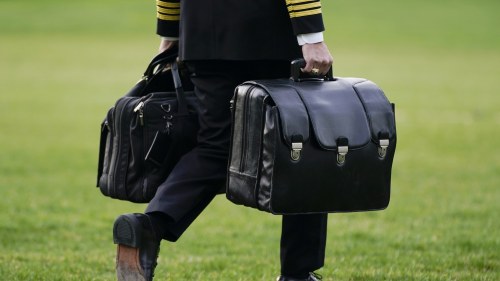
Sixty-one percent of the US public is uneasy with only the president having the power to authorize the use of nuclear weapons.
Seventy-eight years after the first use of nuclear weapons, the command and control of the US nuclear arsenal continues to rest in the hands of one person: the US president. Polling from the Chicago Council on Global Affairs and Carnegie Corporation of New York finds most Americans are wary of the president having the sole authority to authorize the use of nuclear weapons. While a majority of Americans think the president should exert a great deal or fair amount of influence over US nuclear weapons policies, an even larger majority say the same about US military leaders.
The Origins of Sole Authority
On July 16, 1945, the first nuclear weapon was detonated by the United States in a remote desert just south of Socorro, New Mexico. As part of the secretive Manhattan Project, the detonation was overseen by the US government and its army of nuclear physicists in a concerted effort to test the design of the atomic bomb.
Less than a month later, two atomic bombs were detonated over the Japanese cities of Hiroshima and Nagasaki to the surprise and shock of most Americans—even those who unknowingly worked to build them. Unbeknownst to many, a third atomic bomb was scheduled to detonate over Tokyo, until President Harry Truman ordered that no more atomic bombs be dropped without his express authority. He believed that nuclear weapons were political and therefore, should be controlled by a political office like the presidency, rather than the military.
Since the beginning of the nuclear age, the power to authorize nuclear warfare has rested solely with the president. The president may order the launch of nuclear weapons at any time and for any reason without checks from other branches of the government. In recent years, some have called upon Congress to reconsider the nuclear chain of command and require presidents to consult with others before authorizing the use of nuclear weapons.
Most Americans Are Uncomfortable with Policy of Sole Authority
According to Chicago Council-Carnegie Corporation polling, a majority (61%) of Americans are either somewhat or very uncomfortable with the US president having the sole authority to authorize the use of nuclear weapons. Along partisan lines, Republicans and Independents have similar attitudes to those of the overall public in that a majority of each are either very or somewhat uncomfortable with the policy of sole authority (73% vs. 65% vs. 61% overall, respectively), whereas only 48% of Democrats are either very or somewhat uncomfortable with it. The majority of Democrats may be more comfortable with the US president having sole authority to launch nuclear weapons because the current president, President Joe Biden, is a Democrat.
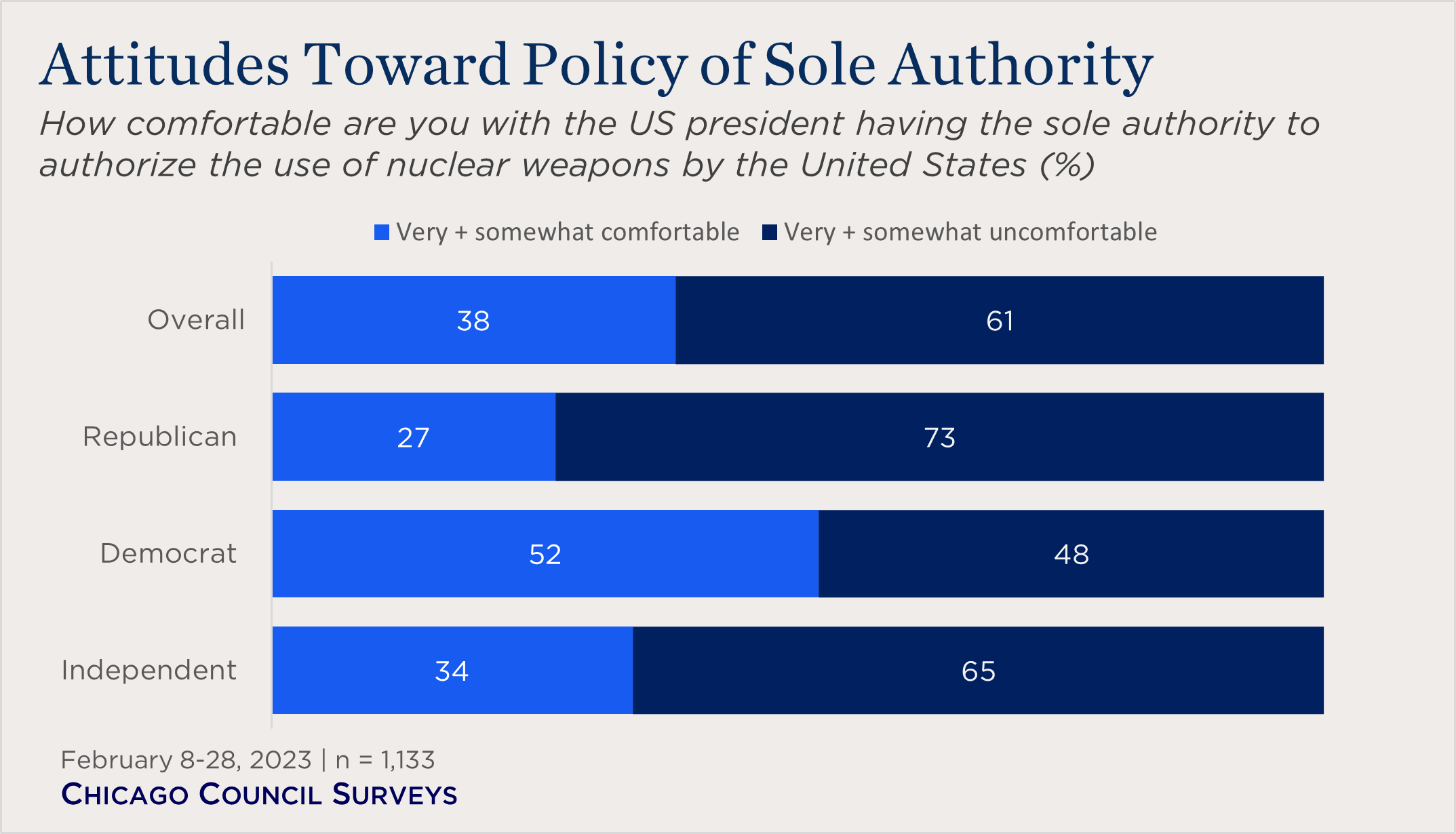
The data also show most (56%) Americans do not trust the information they receive from the president about nuclear weapons. Republicans and Independents are 38 and 22 percentage points, respectively, less likely to trust the information they receive from the president about nuclear weapons than are Democrats (62%).
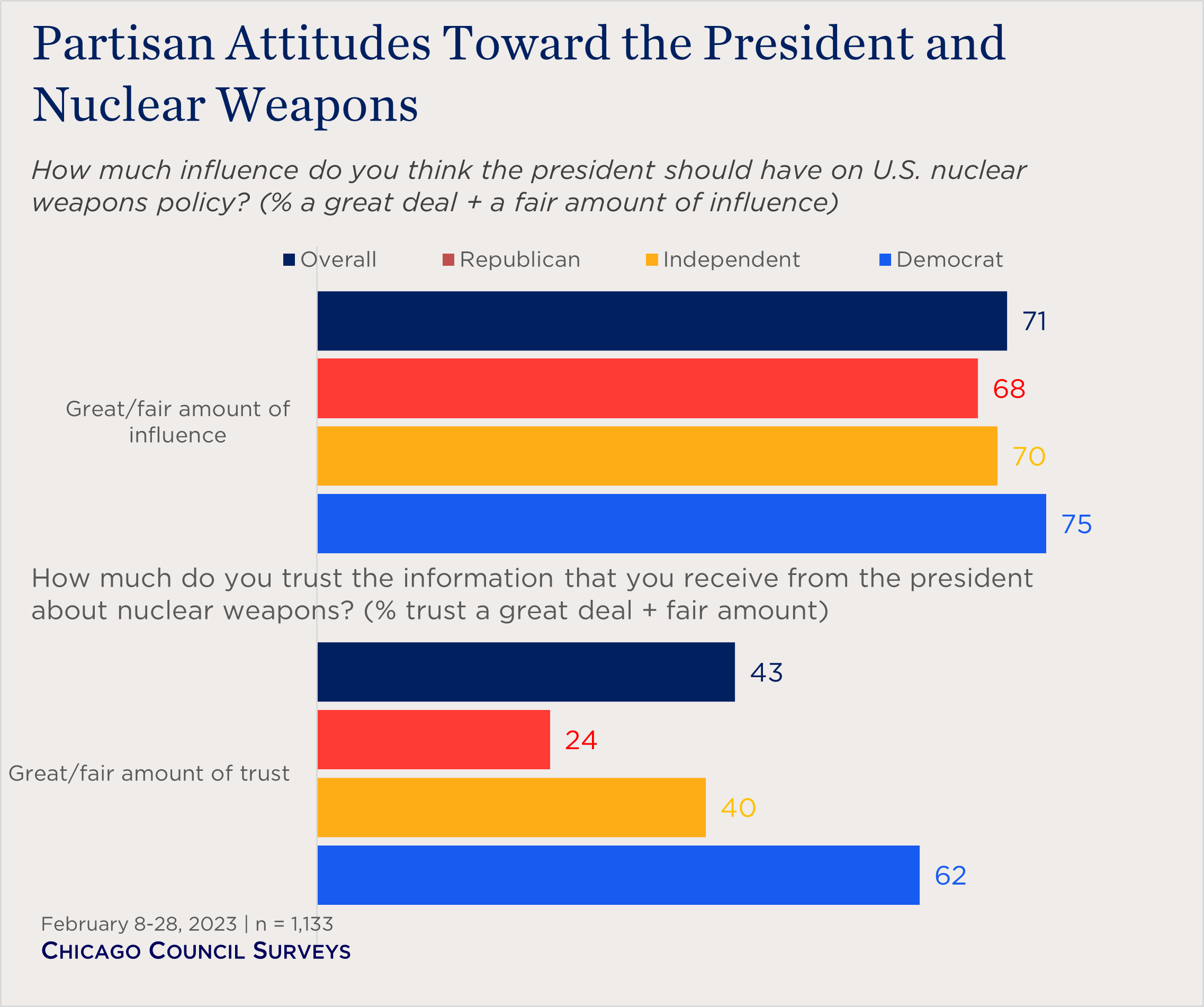
Although most Republicans and Independents are not comfortable with the president having the sole authority to authorize the use of nuclear weapons and do not trust the information they receive from the president about nuclear weapons, majorities of both (70% and 68%, respectively) think the president should either have a great deal or a fair amount of influence on US nuclear weapons policy. These findings might suggest that if the current president were a Republican, self-described supporters of the Republican Party might feel more comfortable with the policy of sole authority, while Democrats would be less comfortable with it.
Who Do Americans Trust with Nuclear Weapons?
When it comes to US nuclear policy, polling shows seven in 10 Americans think Congress should have a great deal or a fair amount of influence on US nuclear weapons policy—and nearly as many (62%) think the same about the American people. A strong majority of Americans (71%) also say the president should have a great deal or a fair amount of influence over US nuclear weapons policy, while a higher percentage (77%) say the same of US military leaders.
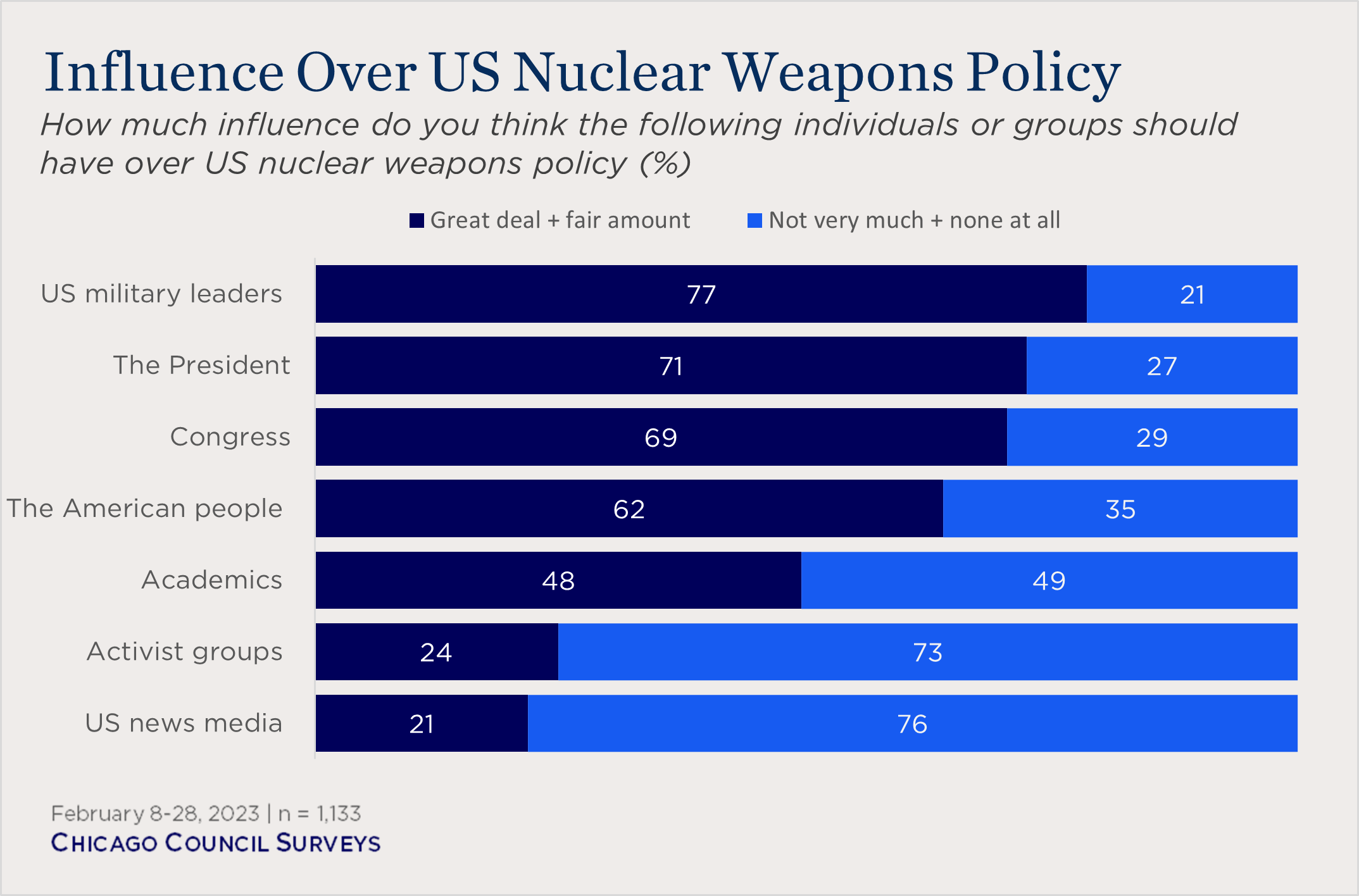
Americans not only think that US military leaders should be influential in making US nuclear policy, but they also look to the military as a trusted source for information on nuclear weapons. When asked how much they trust the information they receive from various sources about nuclear weapons, the majority of Americans are more likely to trust information from US military leaders (56%) than from the president or Congress (43% and 37%, respectively).
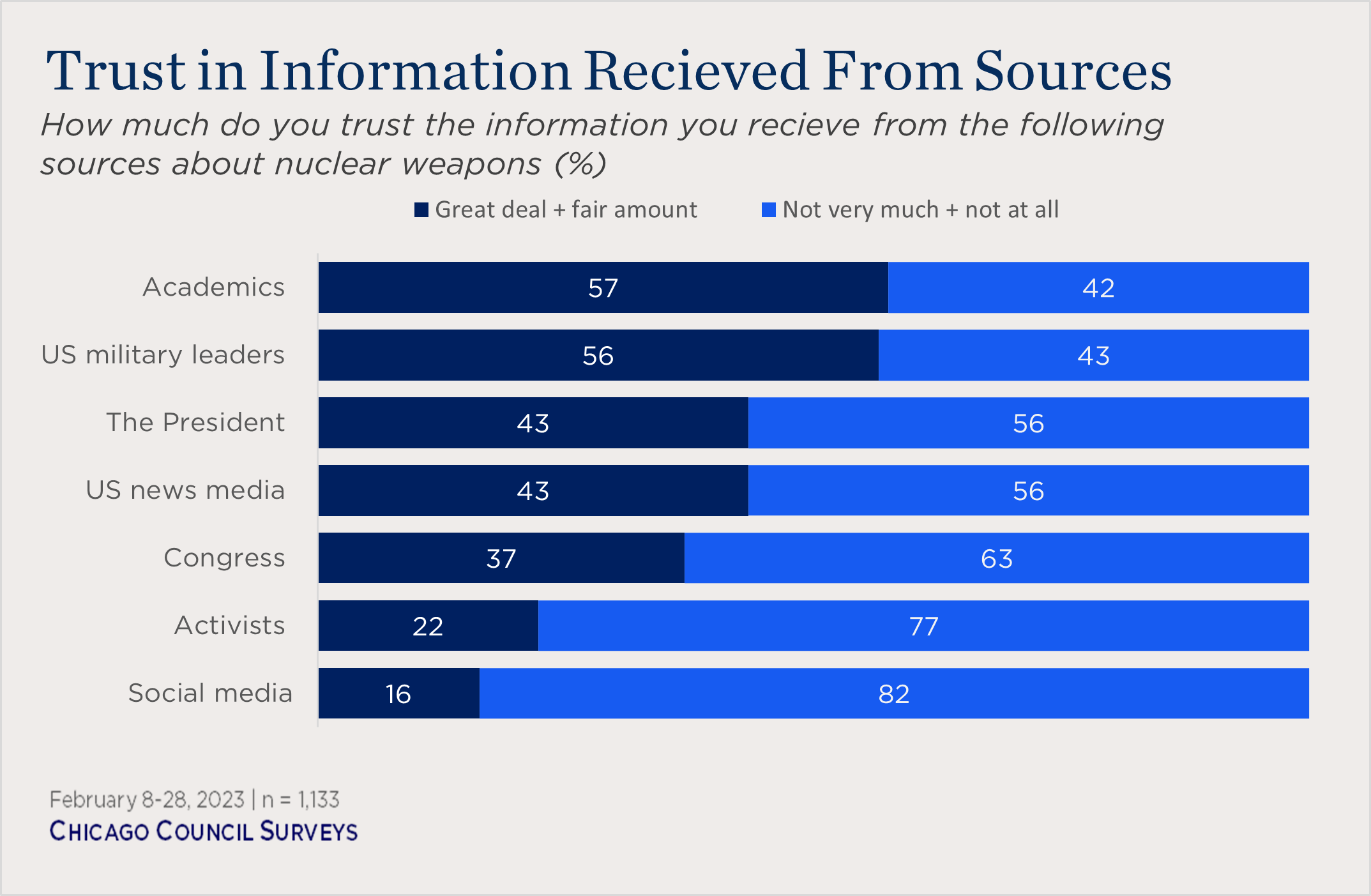
Americans are also about as likely to trust the information they receive from academics (57%) about nuclear weapons as they are to trust information they receive from the military. This suggests that, at least in surveys, Americans are more likely to trust the information they receive from experts in nuclear power and warfare, rather than political representatives.


Related Content
 Defense and Security
Defense and Security
Discover the power of cinema as we unpack the 'Oppenheimer' movie's ability to resurface long-forgotten fears and inspire dialogue around nuclear consciousness.
 Defense and Security
Defense and Security
While Americans may support a retaliatory strike if the United States is attacked, Council polls reveal they oppose using nuclear forces to defend allies.
 Public Opinion
Public Opinion
A solid majority (69%) say that it would never be justified for Moscow to use a tactical nuclear weapon in its current military operation against Kyiv.
